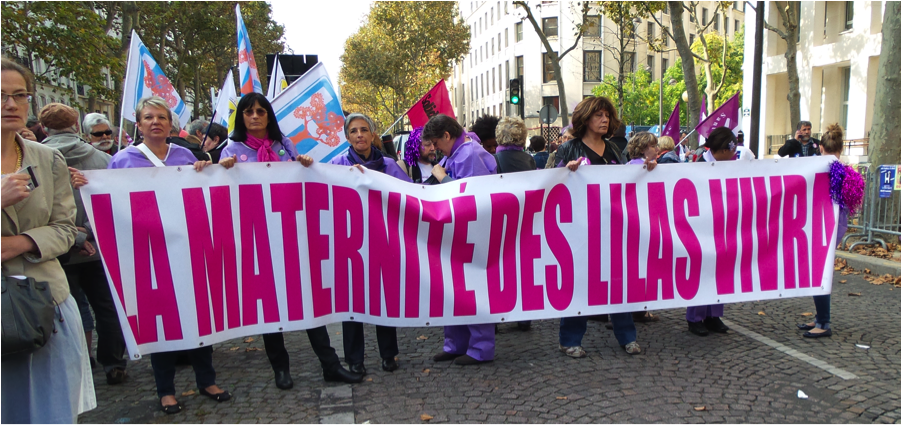
In the 21st century, women are still disembodied bodies.The US Supreme Court just ruled against a buffer zone around medical/abortion centers that could have made the trip for women to reproductive care services devoid of abuses and threatening slurs. In addition in many states (such as Louisiana, Texas, Oklahoma, North Dakota) access to abortion services is technically rendered impossible. Then, the Hyde Amendment still undermines the promise of Roe v Wade. In addition, even pregnant women may feel that their fetuses come first, as politicians don’t hesitate to declare that women are just host bodies.
In Spain, The Organic Law for the Protection of the life of the conceived and the rights of the pregnant women, first adopted by the Spanish government in December 2013, still threatens women’s rights. In January, this decision immediately triggered European opposition with thousands demonstrating in the streets of European cities and across Spain.
Who thought that the Spanish Prime Minister Rajoy and his ultraconservative government would have withdrawn their bill meant to send back women’s reproductive health to fascist time? They want to have it passed in the parliament in July, counting on the summer distractions.
With this bill, women will lose their right to make decisions about their bodies. 86% of Spanish people oppose this bill. The bill betrays the government’s mandate to not curtail women’s rights, which includes the right to life, dignity and auto-determination as inscribed in the Spanish constitution. These points are what the Politica Feminista Forum, an association of Spanish feminists, are pressing along with the incompatibility of this bill with Resolution 1607 of the European Council, with CEDAW’s recommendation 24 article 31c, with the International Conference on Population and Development and simply with EU laws that stipulates members state should provide safe access to abortion.
Now the attack on women’s reproductive rights is more than a trend. It goes with the doctrine of austerity to curtail public services, with growing inequalities affecting women first, not to forget criminalization of petty offences matched by the increase of police power within countries and at the borders.
One should wonder if reproduction should work like factories, since the same power is attacking labor rights. That must be a dream for neo liberal elite theorists!
Women and men in Spain, and elsewhere, are watching and acting. For Spain a petition has been circulating.
Active solidarity is needed to support resisting people in Spain, in the United States and anywhere women’s rights are compromised on the ground of morality that in fact defends financial profitability for the elite. That is not what a human society should be.
(Image Credit: Mundubat)







